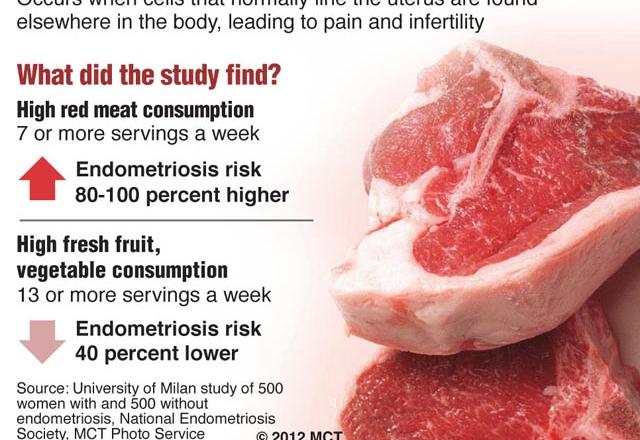You are here
‘Inflammatory’ diet linked to higher risk of colon cancer
By Reuters - Jan 25,2018 - Last updated at Jan 25,2018

Photo courtesy of newsbomb.gr
People who consume lots of foods linked to chronic inflammation, such as red meat and refined grains, may be more likely to develop colorectal cancer than individuals who tend to avoid these foods, a US study suggests.
Researchers examined more than two decades of US survey data on eating habits and cancer diagnoses for 74,246 female nurses and 46,804 male health professionals. They sorted participants into five groups based on how likely it was that their daily diets could contribute to inflammation.
Compared to people with diets that had the least potential to cause inflammation, individuals with diets that were most likely to cause inflammation were 32 per cent more likely to develop colorectal cancer during the study, researchers report in JAMA Oncology.
“A dietary pattern that is associated with higher levels of inflammation will chronically stimulate the bowels, leading to the production of a constantly higher level of circulating inflammation mediators that may contribute to the development of cancer,” said lead study author Fred Tabung, a researcher at the Harvard T.H. Chan School of Public Health and Brigham and Women’s Hospital in Boston.
“Such a pro-inflammatory dietary pattern has a high intake of red meat, processed meat, organ meat, refined grains, and sugary beverages and a low intake of tea, coffee, dark yellow vegetables and green leafy vegetables,” Tabung said by e-mail.
Men with the most pro-inflammatory diets were 44 per cent more likely to develop colorectal cancer than men with diets that were least likely to cause inflammation, the study found.
Women with the most pro-inflammatory diets were 22 per cent more likely to get colorectal tumours.
In both men and women, the connection between a pro-inflammatory diet and colorectal cancer risk persisted across all anatomical sites where these tumours can develop, except for the rectum for women.
The risk of developing colorectal cancer was even higher among overweight or obese men and lean women, and also among men and women who did not consume alcohol.
Some of the most important risk factors for colorectal cancer are family history, personal history of polyps or cancer, certain diseases such as ulcerative colitis, and not getting screened, previous research has found. Not smoking, maintaining a normal weight and taking aspirin are associated with a lower risk of colon cancer.
Related Articles
PARIS — Bacon, hot dogs and cold cuts are under fire: The World Health Organisation (WHO) threw its global weight behind years of experts’ w
Yet another benefit of eating a diet containing high amounts of wholegrains may be a reduced risk of liver cancer, a new US study suggests.&
Women who often indulge their cravings for hamburgers, steaks and other red meat may have a slightly higher risk of breast cancer, a new study suggests.



















